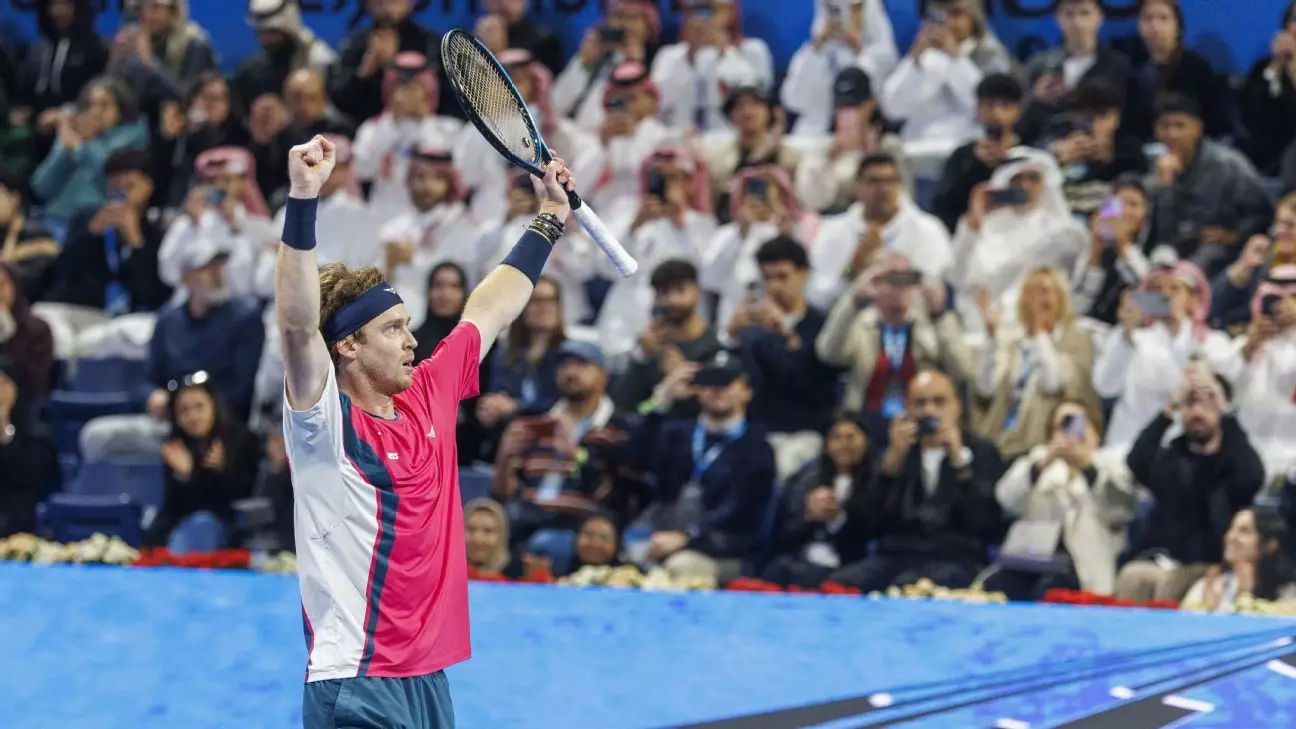In the world of professional sports, the mental health of athletes often lurks in the shadows, overshadowed by physical prowess and competitive spirit. Andrey Rublev, currently ranked ninth in the world, faced such challenges head-on. His candid reflections reveal a journey marked by emotional turmoil, self-discovery, and transformative conversations. Rublev’s struggles included grappling with stress and anxiety, emotions that frequently encumbered his performance on the court. However, after a transformative discussion with two-time Grand Slam champion Marat Safin, he began to see a glimmer of hope.
Rublev’s pivotal conversations with Safin appear to be a turning point in his life. Having experienced his own share of emotional upheavals on the court, Safin brought invaluable insights to Rublev. His experiences, littered with instances of impulsive behavior—like smashing rackets—seemed to resonate with Rublev, enabling him to understand the root of his struggles. Safin’s mentorship encouraged Rublev to reassess his mindset and emotions, creating a road map for recovery that began with self-acceptance. This shift is crucial, as understanding oneself can be the foundation upon which lasting change is built.
Rublev’s previous season in Dubai was marred by controversy when he was defaulted from his semifinal match, following a dispute with a line judge. Instead of allowing this incident to define him, Rublev demonstrated resilience by moving past such challenges. He spoke of being trapped in a cycle of confusion, which persisted for years. Acknowledging the heavy toll of his emotional struggles, he articulated feelings ranging from existential confusion to frustration. Yet, this painful loop of self-doubt is where Rublev found his strength—a testament to his character and determination.
What sets Rublev apart in this narrative is not just the acknowledgment of his struggles but his newfound approach post-therapy and discussions. He describes his current state as neutral—a significant reprieve from the stormy seas of depression and anxiety that had previously enveloped him. This neutrality is not devoid of joy; rather, it signifies a baseline stability that allows him to focus on his game without the debilitating stress that once clouded his performance. Rublev’s honesty about having tried, and ultimately discontinued, antidepressants highlights his explorative journey of finding what works for him. He is now in what he terms the initial phase of rebuilding himself—a journey with no guaranteed roadmap but one filled with hope.
As Rublev prepares to kickstart his campaign in Dubai against French qualifier Quentin Halys, his refreshed mindset could prove integral to his performance. While past burdens may have threatened to slow him down, his resilience portrays a message of hope for other athletes experiencing similar struggles. Rublev serves as a reminder that the journey of understanding and overcoming mental health challenges is perfectly valid, underlining the importance of community and conversations in healing. His progress reflects the notion that even in the rigid world of sports, emotional well-being can be nurtured, leading to breakthroughs on and off the court.

